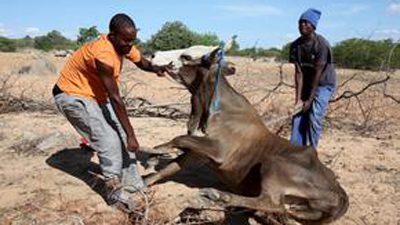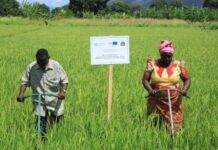The impact of the drought in eastern and southern Ethiopia is worsening affecting pastoralist and agro-pastoralist communities in these areas.
According to the UN Office for the Coordination of Humanitarian Affairs (OCHA), the prolonged drought is the result of three consecutive failed rainy seasons since late 2020.
At least 81 million people are affected.
“The number of livestock dying from lack of pasture and water is staggering. Estimates from regional governments indicated more than 1.46 million livestock deaths,” OCHA said in a situation report released this week.
“This is a key indicator of how alarming the situation has become. Surviving animals have a significantly deteriorated body condition which has decreased their market value and has led to a correlated decrease of the purchasing power of households, who are becoming increasingly vulnerable with further limited coping strategies.
“Food and nutritional insecurity have further soared because livestock remain the main source of nutrition and income for these communities. At least 286 000 people who have the means to travel have migrated in search of water, pasture or assistance, leaving behind their elderly and the sick, which is exposing them to higher vulnerabilities and protection risks.”
OCHA added the situation was not expected to improve rapidly and will require a continuous engagement over the months to come, with a likelihood of a fourth consecutive poor rainy season.
“According to the most recent seasonal forecast by ICPAC, a below-average belg season is expected. However, some other sources are leaning towards a normal belg season. Actual and forecasted rainfall data from 1 March up to mid-April show that the northeastern part of the country is currently experiencing its top three driest season on record. Crop Monitor for Early Warning is also leaning towards an upcoming failed season thus leading more people into an alarming situation.
It said the March to May season constitutes an important rainfall season, particularly in the equatorial parts of the region where it contributes up to 70% of the total annual rainfall.
“A renewed failure of the rains would have massive socio-economic consequences after two years of persistent drought which has already decimated livestock and agriculture and undermined health and well-being in one of the world’s most fragile regions,” it said.
“Even with good rains that would help replenish water sources and restore pasture, the recovery from this shock by the affected population will take time, until which time they will require continuous support.”









